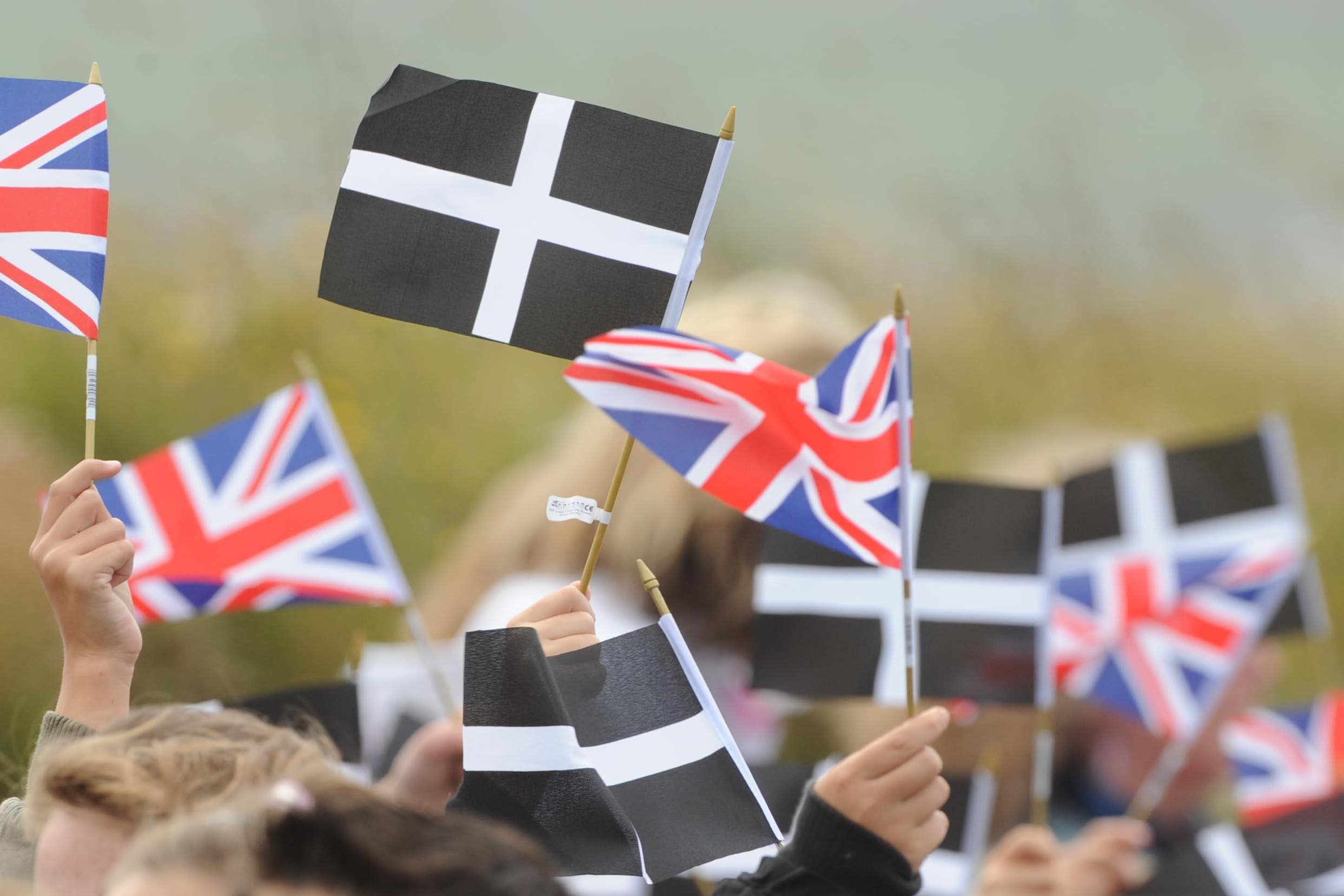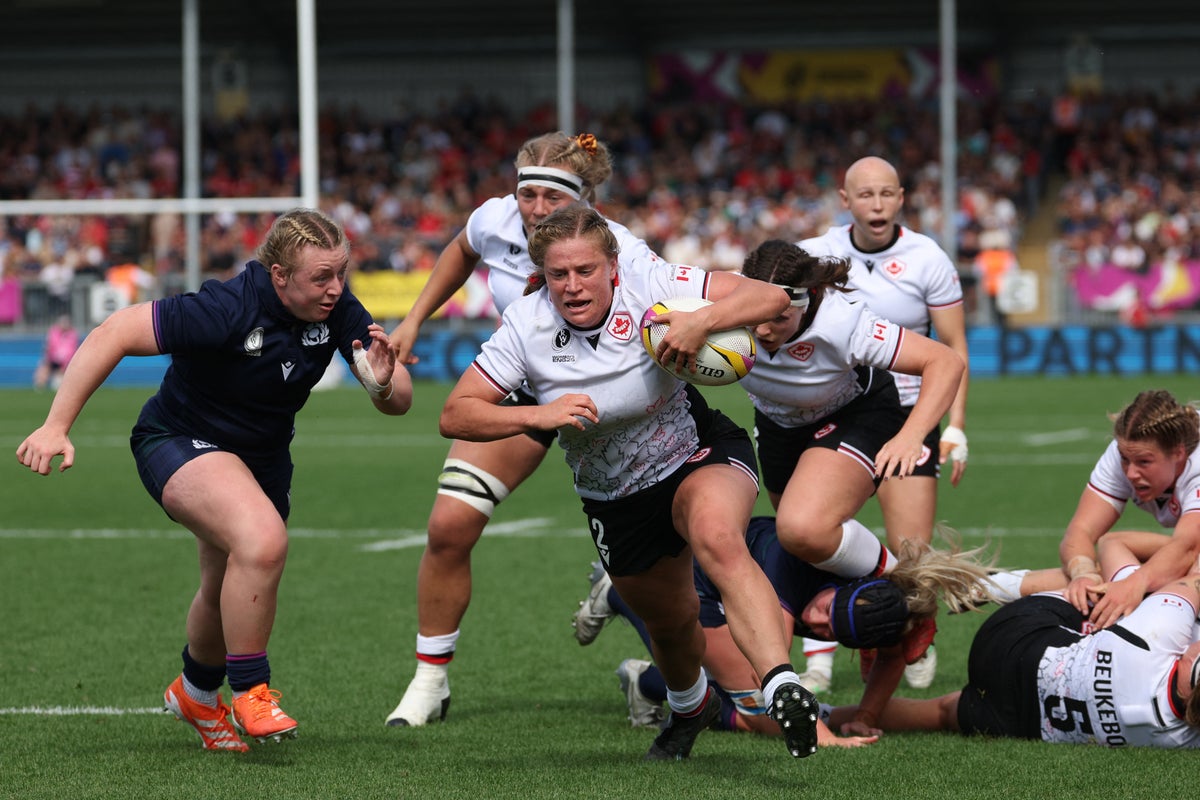I’d been living in a quiet coastal town for a year, and had seen bumper stickers with the St Piran flag everywhere, when I asked one of my new friends at the school gates if she knew where I could get one for my little battered Mazda. “Oh my God,” she said. “Don’t put a Cornish flag sticker on your car – it’ll get keyed!”
Yes, she was exaggerating about it being a callsign for vandals. I’m sure no one in my neighbourhood would have dreamed of keying my already scratched-up car. But the sentiment, although humorously delivered, was real: incomers simply cannot fly the Cornish flag on their car.
Nearly 15 years later, I still wouldn’t dare to publicly associate with the white-cross-on-black flag that is said to represent tin flowing from Cornish rock.
My children have grown up here; they’ve been through nursery, primary, secondary school, and college in Cornwall. They’ve celebrated St Piran’s Day at school every year; the bus they take to school every day has a Cornish motto on the back – none of the kids on board knows how to say it properly, let alone what it means. They’ve been educated about Cornwall’s rich mining and engineering history since they could first sit still in a classroom. They’ve been to all the local festivals and countless performances celebrating the pagan stories that emanate from its ancient Celtic heritage.
Yet to many here, they are as much outsiders as I am. There is a deep pride in the region, for sure – and, other than that jokey comment from my friend in those early days, I have never felt excluded from my community. But sometimes it seems that losing your “emmet” status (the Cornish for “ant”, also meaning “tourist”) can take more than a lifetime.

The debate about Cornish nationality and exactly who can claim it has been reignited by Labour MP Perran Moon, who won the Camborne and Redruth seat at the general election. Last week, during a debate in the Commons on the English Devolution and Community Empowerment Bill, he said: “I’m Cornish, not English.” He also revealed that he had been mocked for describing himself as such, despite having grown up in Redruth and Penzance. But because he only returned to live in the county a few years ago, having spent 30 years working and bringing up a family in Oxfordshire, he’s an emmet.
By identifying as Cornish at all, Mr Moon is actually a bit of an outlier in his home county. There are very few people here who identify as Cornish, according to the Office for National Statistics. Just 18 per cent of the population, around 110,000 people, declared themselves Cornish in the 2021 census. Admittedly, that may have been a flaw with the questionnaire – there was no specific “Cornish” tick-box, cue much gnashing of local teeth – but still.
Perran is perhaps using his Cornish identity as a political tool to encourage Parliament to give Cornwall more autonomy. “We have our own language, heritage, and minority status, so we should be able to govern ourselves as a separate mayoral entity,” is, in essence, his message.
To the people for whom Cornwall is more than a place where they happened to have been born, but an exclusive identity, I will always be an outsider. When I once wrote an article about Cornish tourism, it was regurgitated on a local news site – and received a litany of below-the-line vitriol. I’m a “blow-in”, apparently, a posh woman from London, and I should jolly well head back from whence I came (or words to that effect).
Within my warm and welcoming community, this is the friendliest, most accepting place I have ever lived. This is my children’s home, and they belong here like any other kids belong in the place where they grow up. Perhaps they will leave the county and identify as Cornish to help them stay connected with their childhood home. But I suspect that they will remain as they are: they love Cornwall, but they don’t feel the need to attach a nationalistic pride to that feeling.


